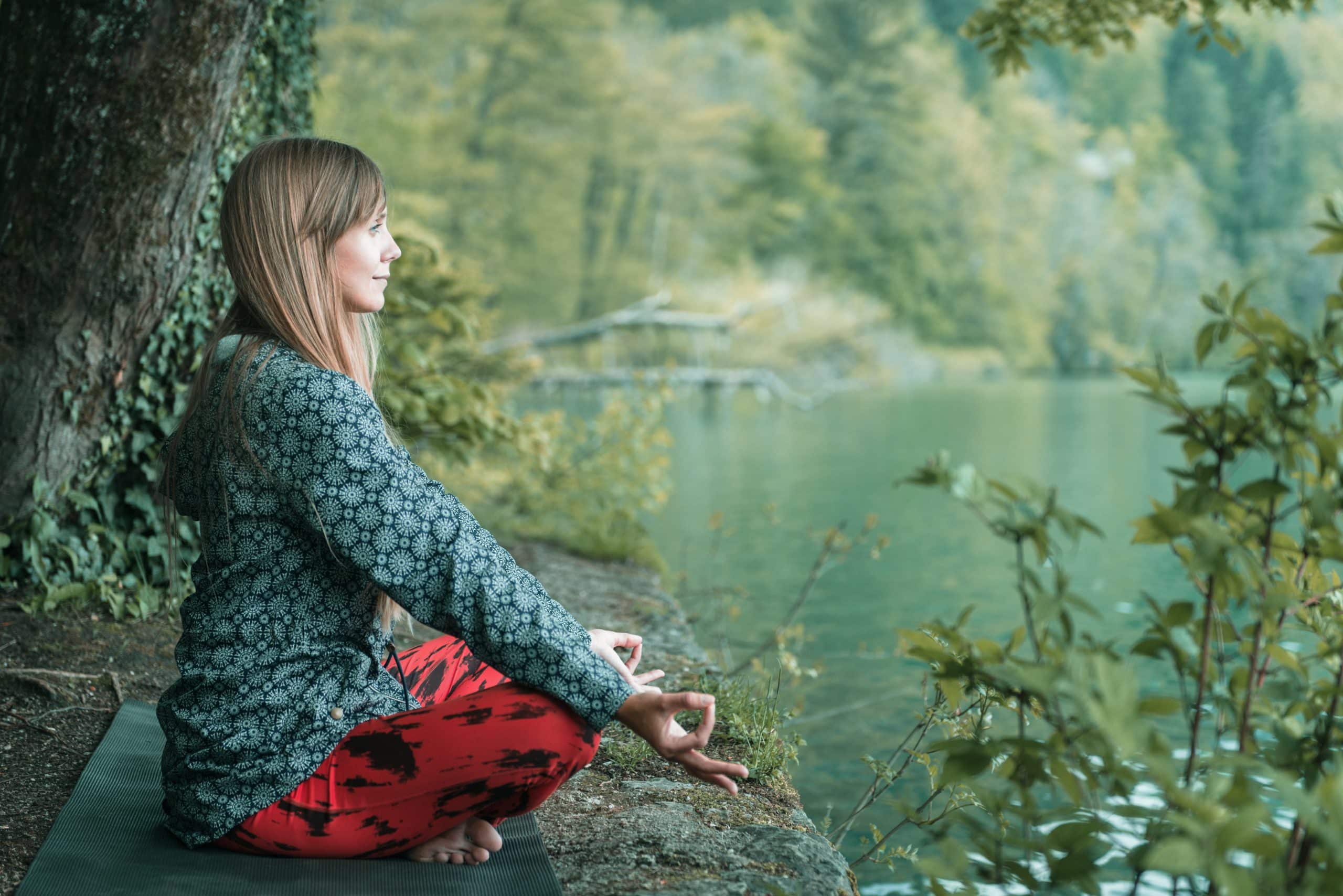Learning and practicing mindfulness meditation is an enlightening journey and a powerful tool for personal growth. It offers an opportunity to connect with the present, fostering a sense of calm and tranquility. For those just beginning this journey in the UK, the path might seem a bit daunting. There are countless books, courses, and online resources, all claiming to offer the best approach. So, where should you start?
In this article, we will delve into the world of mindfulness meditation. We will explore its primary components, provide practical steps for beginners, and offer some tips and strategies to help you maintain your practice over time. Whether you are seeking to reduce stress, improve focus, or merely curious about mindfulness, this comprehensive guide is your starting point.
A lire en complément : How Does the Nutrient Profile of UK-Grown Quinoa Compare with Imported Varieties?
Understanding Mindfulness Meditation
Before embarking on your mindfulness journey, it’s crucial to understand what mindfulness meditation entails. At its core, mindfulness is about paying full attention to the present moment. It involves acknowledging your thoughts, feelings, and bodily sensations without judgment.
Meditation, on the other hand, is a practice where individuals use a technique – like mindfulness or focusing the mind on a particular object, thought, or activity – to train attention and awareness, and achieve a mentally clear and emotionally calm and stable state.
A découvrir également : Can Participating in Community Theatre Productions Improve Social Skills in UK Adolescents?
When combined, mindfulness meditation becomes a practice where individuals focus their attention on the present moment, acknowledging and accepting it without judgment. By practicing mindfulness meditation, you learn to observe your thoughts and feelings from a distance, without letting them control you.
Starting Your Mindfulness Meditation Journey
Now that you have a basic understanding of mindfulness meditation, the next step is to start your practice. However, like any journey, the first step is often the hardest. Here are some practical suggestions.
-
Find a suitable place: Choose a quiet and comfortable place where you will not be disturbed. This could be a corner of your room, a garden, or even a local park.
-
Start small: Begin with just a few minutes each day. Gradually increase this time as your comfort and confidence grow.
-
Focus on your breath: One of the easiest ways to bring your attention to the present is to focus on your breath. Observe each inhale and exhale, and let your breath guide you into the present moment.
-
Acknowledge and accept your thoughts: Remember, mindfulness is not about clearing your mind but about acknowledging your thoughts without judgment. If your mind wanders, gently bring your attention back to your breath.
Learning and Practicing Mindfulness Meditation
Incorporating mindfulness meditation into your daily routine may seem challenging at first. However, consistent practice is key to mastering this skill.
To help you better understand the mindful meditation process, here is a simple step-by-step guide:
-
Sit comfortably: Find a quiet place and sit comfortably, preferably with your back straight. Close your eyes if you wish.
-
Take a few moments: Take a moment to relax your body, releasing any tension.
-
Focus on your breath: Start to focus on your breath. Notice the sensation of the air entering and leaving your nostrils or the rise and fall of your chest or belly as you breathe.
-
Notice when your mind wanders: Your mind will inevitably wander. When you notice this, simply acknowledge it without judgment, and bring your focus back to your breath.
-
End your session gently: After your set time, gently lift your gaze or open your eyes if they were closed. Take a few moments to notice how your body feels and the environment around you before standing up.
Strategies to Maintain Your Practice
Once you’ve begun your mindfulness journey, the challenge is to keep it going. Here are some strategies to help maintain your practice:
-
Make it a Habit: The best way to ensure you practice mindfulness meditation regularly is to make it a part of your daily routine.
-
Leverage Technology: There are numerous mindfulness apps available that offer guided meditation sessions, reminders to meditate, and tools to track your progress.
-
Join a Mindful Community: Joining a community of like-minded individuals can provide support and motivation. Look for local meditation groups in your area or online mindfulness communities.
Remember, mindfulness meditation is a journey. It’s okay if your mind wanders or if you miss a day of practice. What’s important is to recognize this without judgment and gently guide yourself back to your practice.
Managing Expectations and Common Challenges
While mindfulness meditation offers numerous benefits, it’s essential to manage your expectations. It is not a cure-all solution, and the effects often take time to manifest. You might not notice immediate changes, and this is entirely normal.
Remember, the goal of mindfulness meditation is not to achieve a specific state but rather to foster awareness and acceptance of the present moment.
It’s also important to acknowledge that you may encounter challenges along the way, such as finding time to meditate or dealing with distractions.
However, these challenges also present opportunities for learning and growth. They can serve as reminders of why you started practicing mindfulness meditation in the first place and help strengthen your commitment to your practice.
By understanding the essence of mindfulness meditation, taking the first step, practicing regularly, maintaining your practice, and managing your expectations, you will be well on your way to reaping the full benefits of mindfulness meditation. Remember, the journey of a thousand miles begins with a single step. So, why not take that step today?
Incorporating Different Mindfulness Techniques
Understanding and practicing the basics of mindfulness meditation lays a strong foundation for your mindfulness journey. However, to keep the practice engaging and to deepen your understanding, it’s beneficial to incorporate different mindfulness techniques.
Some of these techniques include the body scan, loving kindness meditation, and guided meditations.
Body scan is a type of mindfulness practice where you pay focused attention to different parts of your body, from your toes to the crown of your head. It allows you to explore the intimate connection between your mind and body, helping you become more attuned to your physical sensations and thoughts emotions.
Loving kindness meditation, also known as Metta meditation, is a practice of developing feelings of goodwill, kindness, and warmth towards others. It can be particularly beneficial for enhancing empathy, improving relationships, and fostering positive attitudes.
Guided meditations are particularly useful for meditation beginners. As the name suggests, these are meditation sessions led by an experienced practitioner. They provide step-by-step guidance, making the meditation process easier to follow.
In addition, guided meditations come in various themes and lengths, offering a wealth of options to suit your preference and schedule. They can be easily accessed through numerous mindfulness apps or online platforms.
Conclusion: The Power of Mindfulness for Mental Wellbeing
The journey to learning and practicing mindfulness meditation can be as rewarding as it is transformative. It offers a path to inner peace, emotional balance, and heightened awareness of our thoughts, feelings, and surroundings.
In today’s fast-paced world, mindfulness meditation provides a sanctuary, a space where we can slow down, reconnect with ourselves, and cultivate a state of serenity. Whether it’s through focusing on your breath, practicing body scans, or participating in guided meditations, you’re on your way to experiencing the profound impact of mindfulness on your mental wellbeing.
Furthermore, mindfulness meditation is not just a fad or a stress reduction tool. It’s a way of life, a practice that encourages us to live in the present, to accept and embrace what is. It’s about paying attention, in a particular way, on purpose, in the present moment and non-judgmentally.
Starting a mindfulness practice might seem daunting initially, but remember, every expert was once a beginner. Be patient with yourself, keep an open mind, and most importantly, enjoy the journey. The path of mindfulness meditation is a journey of self-discovery, self-acceptance, and personal growth. In the words of Jon Kabat-Zinn, "You can’t stop the waves, but you can learn to surf."
No matter where you are in the UK or in your mindfulness journey, remember, the key is in the practice. It is not about being good at meditation, but about being good to yourself through the practice of mindfulness.
Take the first step today, embrace the power of the present, and start your journey to a happier, healthier you.










